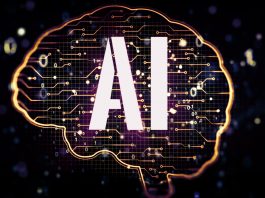A team of Danish researchers have invented an innovative computer algorithm that can potentially aid in mitigating the impacts of climate change.
The novel computer algorithm, developed by a research team at the University of Copenhagen, is proficient in drastically reducing the resource consumption of the world’s computer servers, which currently emit the same amount of harmful effects on the climate as the entire global air traffic combined.
Exacerbating climate change with computers
As the world strives toward becoming a global society of carbon neutrality, reducing the substantial, harmful effects emitted by IT will be a monumental obstacle to navigate in completing the green transition. Due to the astronomical electricity consumption of computer servers, current CO2 emissions from data centres have risen to rival the emissions of Earth’s global air traffic, with this estimated to double within a couple of years.
Just a few years ago, Professor Mikkel Thorup, one of the research leaders, was part of a team that created a revolutionary computer algorithm that helped reduce the effects of computer server workflows, saving energy and resources. The groundbreaking computer algorithm was hastily implemented by some of the world’s leaders in technology, such as Google and Vimeo, who both incorporated it into their systems, with video platform Vimeo stating that the computer algorithm reduced their bandwidth usage by a factor of eight. However, this only partly solved the computer server problem.
The novel computer algorithm fabricated by Thorup and his two UCPH colleagues looks to have perfected their prior algorithm, addressing a crucial flaw in computer systems where some servers become overloaded whilst others have a surplus of capacity left.
“We have found an algorithm that removes one of the major causes of overloaded servers once and for all. Our initial algorithm was a huge improvement over the way the industry had been doing things, but this version is many times better and reduces resource usage to the greatest extent possible. Furthermore, it is free to use for all,” says Professor Thorup of the University of Copenhagen’s Department of Computer Science, who developed the algorithm alongside department colleagues Anders Aamand and Jakob Bæk Tejs Knudsen.
Server congestion
The neoteric computer algorithm solves the overloading problem that occurs when the servers receive more requests from clients than they can handle, which can occur, for example, when a considerable amount of people try to watch the same film on Netflix at the same time. In these circumstances, the systems often must shift clients around multiple times to attain a balanced distribution in the servers.
To achieve this balance requires an exceptionally complex mathematical calculation, which is extremely difficult as there can be up to a billion servers in the system, which becomes increasingly volatile as new servers and clients join and leave. This can often result in server congestion, breakdowns, and excessive resource consumption, increasing harmful impacts on the climate, with studies suggesting that internet traffic will triple between 2017 and 2022, with online videos comprising 82% of all internet traffic.
“As internet traffic soars explosively, the problem will continue to grow. Therefore, we need a scalable solution that doesn’t depend on the number of servers involved. Our algorithm provides exactly such a solution,” explains Thorup.
The inner workings of the computer algorithm
The team’s new computer algorithm guarantees that clients are evenly distributed among servers by transporting them around minimally and locally retrieving content as much as possible. For example, to ensure that a server is never more than 10% more burdened than others, the old computer algorithm could deal with an update by moving a client 100 times; however, the new computer algorithm decreases this to only ten moves, even when billions of servers and clients are in the system.
Various large IT companies have already adopted the new computer algorithm, with the researchers believing that the entire industry will employ the incredible advancement.









